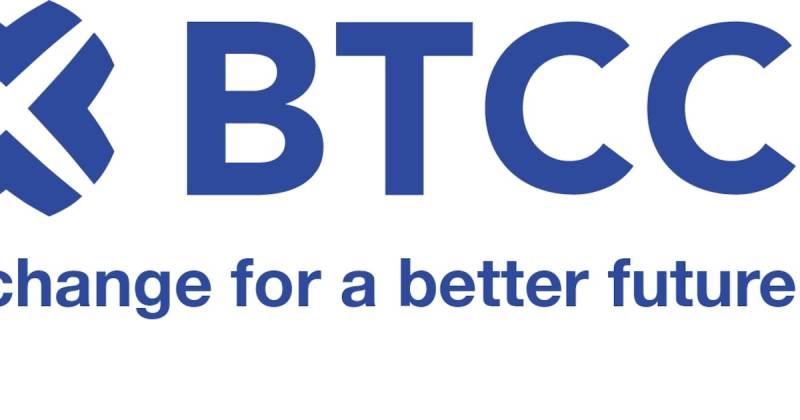 |
|
 |
|
 |
|
 |
|
 |
|
 |
|
 |
|
 |
|
 |
|
 |
|
 |
|
 |
|
 |
|
 |
|
 |
|
Cryptocurrency News Articles
Bitcoin's Journey from Obscurity to Mainstream Acceptance
Apr 17, 2024 at 03:08 pm
Bitcoin's journey from inception to mainstream acceptance has been marked by volatility and innovation. Its creation in 2009 has spurred significant price fluctuations, regulatory challenges, and technological advancements. Despite these obstacles, Bitcoin has garnered interest from institutional investors and governments, culminating in its recognition as legal tender in El Salvador. However, the inherent volatility of BTC raises questions about the feasibility of investing in it.

Bitcoin's Journey: From Inception to Mainstream Acceptance
Introduction:
Bitcoin, the seminal cryptocurrency, has embarked on a remarkable odyssey since its inception in 2009. Marked by volatility, innovation, and regulatory hurdles, Bitcoin's path to mainstream acceptance has been both tumultuous and transformative. This comprehensive analysis traces the key milestones, challenges, and advancements that have shaped Bitcoin's journey, offering insights into its potential and the challenges that lie ahead.
The Early Days (2009-2013)
Bitcoin's genesis lies in 2009, when an anonymous entity or group known as Satoshi Nakamoto unleashed the protocol to the world. Initially a niche curiosity among computer enthusiasts and cryptography experts, Bitcoin's early years were characterized by experimentation and a sense of novelty. The first recorded real-world transaction using Bitcoin occurred in 2010 when a programmer purchased two pizzas for 10,000 bitcoins, marking the nascent use of Bitcoin as a medium of exchange.
As Bitcoin gained traction, it also faced its first major price fluctuations. In 2011, its value soared from a few cents to over $30, only to crash back down shortly after. This volatility became a hallmark of Bitcoin's early years, driven primarily by speculation and the actions of early adopters.
The year 2013 proved significant for Bitcoin, but also exposed its vulnerabilities. The rise and fall of Mt. Gox, once the largest Bitcoin exchange, ended in disaster when it filed for bankruptcy after a devastating hack. This event shook the confidence of many in the Bitcoin community and led to a significant drop in its value.
Mainstream Recognition (2014-2017)
By 2014, Bitcoin had begun to penetrate the mainstream as more businesses embraced it as a form of payment. This growing acceptance helped legitimize Bitcoin in the eyes of the public and fueled its rising popularity. However, Bitcoin also faced competition from alternative cryptocurrencies, known as altcoins, which emerged in increasing numbers from 2014 onwards.
In 2016, Bitcoin's position was further challenged by the advent of Ethereum, a blockchain platform that introduced smart contracts and decentralized applications. Ethereum's innovative features captured the imagination of developers and investors, propelling its popularity and market capitalization. This period also witnessed the rise of initial coin offerings (ICOs), a novel fundraising mechanism for startups using cryptocurrency, further expanding the cryptocurrency ecosystem.
Despite these challenges, Bitcoin's value continued to ascend, culminating in a historic moment in 2017 when its price surpassed $20,000 for the first time. This milestone underscored Bitcoin's growing acceptance and popularity, as well as the increasing interest from institutional investors. However, it also raised concerns about the sustainability of Bitcoin's rapid price growth and its potential impact on the broader financial system.
Regulatory Challenges and Forks (2018-2020)
The period from 2018 to 2020 was marked by increased regulatory scrutiny and significant forks in the Bitcoin network. In 2018, regulatory bodies worldwide intensified their focus on cryptocurrencies, including Bitcoin, due to concerns about money laundering, tax evasion, and investor protection. This scrutiny led to stricter regulatory requirements for cryptocurrency exchanges and businesses, as well as efforts to clarify the legal status of cryptocurrencies in various jurisdictions.
One of the key events during this period was the Bitcoin Cash hard fork in 2017, which resulted in the creation of Bitcoin Cash as a new cryptocurrency. The fork was driven by disagreements within the Bitcoin community over the best way to scale the Bitcoin network to accommodate increasing transaction volume. Another important development was the implementation of Segregated Witness (SegWit) in 2017 and 2018, which aimed to enhance the scalability of the Bitcoin network by separating transaction signatures from transaction data.
Despite these challenges, Bitcoin continued to attract interest from investors and users worldwide. The third Bitcoin halving in 2020, which reduced the block reward for miners by half, was a highly anticipated event that was expected to significantly impact Bitcoin's price and market dynamics. The halving event, combined with the broader economic uncertainty caused by the COVID-19 pandemic, led to increased price volatility during this period.
Recent Developments (2021-Present)
In 2021, Bitcoin experienced a surge in interest and investment from institutional investors, marking a pivotal milestone in its journey toward mainstream adoption. Companies such as Tesla and MicroStrategy made significant investments in Bitcoin, signaling their confidence in its long-term value as an asset. This institutional adoption helped propel Bitcoin's price to new all-time highs, surpassing $60,000 per coin in April 2021.
One of the most significant developments in 2021 was El Salvador's decision to adopt Bitcoin as legal tender, making it the first country in the world to do so. This move was met with both enthusiasm and skepticism, as it raised questions about the practicality of using Bitcoin as a medium of exchange on a national scale. Despite these challenges, El Salvador's adoption of Bitcoin was seen as a validation of its potential to disrupt traditional financial systems and promote financial inclusion.
More recently, Bitcoin has faced renewed volatility, with its price fluctuating dramatically in response to market sentiment and external factors. This volatility has raised concerns among some investors about the long-term stability of Bitcoin as an asset. However, many supporters remain optimistic about Bitcoin's future, citing its growing acceptance and adoption as evidence of its potential to reshape the global financial landscape.
Conclusion:
As Bitcoin continues to evolve, its volatile history serves as a testament to its resilience and adaptability. From its humble beginnings as a niche interest to its current status as a mainstream asset, Bitcoin has defied skeptics and consistently attracted interest and investment. While challenges and risks remain, Bitcoin's growing acceptance and the innovative potential of blockchain technology suggest that its journey is far from over. The future holds the promise of continued innovation, regulatory clarification, and potentially wider adoption, shaping the future of finance and the digital economy.
Disclaimer:info@kdj.com
The information provided is not trading advice. kdj.com does not assume any responsibility for any investments made based on the information provided in this article. Cryptocurrencies are highly volatile and it is highly recommended that you invest with caution after thorough research!
If you believe that the content used on this website infringes your copyright, please contact us immediately (info@kdj.com) and we will delete it promptly.
-

- "Cardano (ADA) Price Could Dip Below $0.60, Following Previous Market Cycle"
- Apr 09, 2025 at 05:10 am
- "Cowen goes on to say that ADA's technical indicators, such as its 20-week simple moving average (SMA) and 21-week exponential moving average (EMA), are lining up with the theory that the crypto asset could see another sizeable dip."
-

- BONK, the well-known meme coin, has risen over 35% in the last week, attracting meme coin investors in the market. So, what caused this rally?
- Apr 09, 2025 at 05:10 am
- The well-known meme coin, BONK, has risen over 35% in the last week, attracting meme coin investors in the market. So, what caused this rally?
-

-

-

-

-

-

-


























































